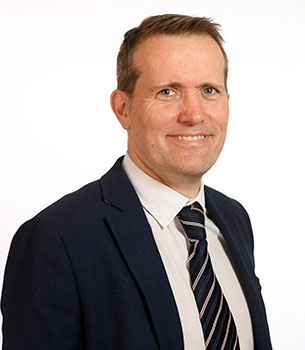
Filing forms to HMRC are part and parcel of running a business in the UK. But the P11D can often be overlooked. Here Andrew Diver, Head of Taxation at Beatons, explores what P11D forms involve, and why they are essential to ensure compliance.
There are plenty of acronyms in the business world, but do you know what a P11D is and why it’s important?
Quite simply, a P11D form is the way a business declares to HMRC what expenses and benefits it has given to employees.
This information helps HMRC calculate how much tax and National Insurance is due for employees.
Approaching deadline
Like many forms, there is indeed a deadline for submitting a P11D – and it is July 6.
But does every business have to file one? It is likely that most will, but if you’re unsure, please contact us for advice.
A P11D should be filed for each employee or company director that has received any benefit in kind, in addition to their regular salary during the previous tax year.
It is not up to the employee themselves to report benefits in kind, but rather the employer who must inform HMRC.
Benefits in kind
A benefit in kind is anything of monetary value provided to the employee which is not deemed ‘wholly, exclusively and necessary’ to carry out their job.
In short, it describes anything given to the employee or paid for by the company which the employee benefits from and the list is quite substantial.
Examples include:
- Company cars owned or hired by employer and made available for personal use including:
- Fuel provided by employer for private use
- Home to work travel costs paid by employer
- Privately owned car expenditure or vehicle hired by director or employee including:
- Mileage allowance except where HMRC approved rates are used
- Running and overhead expenses
- Licence, insurance, petrol, oil and repairs
- Speeding or parking fines
- Payment of expenses in connection with living accommodation
- Medical costs including
- Private medical insurance premiums paid by employer
- Specialist consultations
- Private medical or dental treatment
- Goods and services provided to employee below market value
- Vouchers
- Cheap or interest free loans
- Cost of gym or sporting facilities
- Home telephone or mobile costs in the name of the employee/director
- Private legal or accountancy costs
- Staff entertaining and cost of staff events where total cost per head per tax year exceeds £150 (events must be available for all employees for the £150 limit to apply)
- Gifts to employees of wines, cigarettes, food and clothing.
- Other reimbursed expenses
Exemptions
It is worth noting that electric cars have a benefit in kind charge of 2% of their list price when new, compared to petrol and diesel cars which have rates of up to 37% of list price when new.
Also bear in mind that some medical costs can be exempt, such as eye tests and the purchase of glasses when required for work.
What happens if you’re late
Penalties for late submission are an initial £300 per P11D required plus £60 per day until submission. Penalties for incorrect forms P11D are a maximum of £3,000 per form.
Historically, more HMRC enquiries into employer payroll compliance and benefits in kind irregularities have been undertaken than any other form of direct tax enquiry, so the risk of omissions being identified is significant.
How is the P11D filed?
There are two parts:
- The form P11D(b) is an employer return which includes the total value of benefits provided to each employee and the calculation of Class 1A National Insurance payable.
- Individual P11Ds record each employees’ benefits split into categories. These should be provided to employees as well as submitted to HMRC by July 6.
In some situations, a business may wish to consider approaching HMRC to obtain a PAYE Settlement Agreement rather than submitting a P11D. This would mean the company settles any tax and NIC due. Examples of this relate to the provision of annual events in excess of the £150 annual event exemption, or gifts of vouchers exceeding the trivial benefit threshold of £50.
If you need assistance, email info@beatons.co.uk or call 01473 659777.